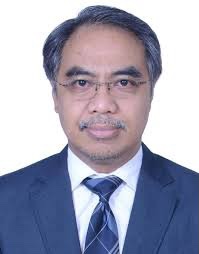
Adam M. Tugio
Assalamualaikum
Distinguished Speakers and Participants,
Let me first convey my sincere thanks to Dr. Ali Salman, CEO of Islam & Liberty Network for kindly inviting me to the 9th International Islam & Liberty Conference on ‘Pluralism, Democracy and Economic Development in Muslim Majority Countries”. It is indeed an honor for me to join this august gathering with experts and learned speakers to discuss contemporary issues facing Ummah.
Today, we heard a lot about Islam, which unfortunately portrays Muslims in a negative light. Muslim societies are portrayed as intolerant, non-progressive, and violent toward other faith believers. Islam is thought to be incompatible with democracy and human rights. According to the Islamic Indices of 2021, Islamic countries rank far below those that implement core Islamic values and bring prosperity to their people.
As a result, profiling against Muslims has become common news in some parts of the world. Muslim responses are typically a combination of defensive rejection, apologetic, and even blaming others. In retrospect, we tend to forget how Islam contributed to Europe’s Renaissance – not only through many scientific ideas, but also through emancipation ideas (anti-slavery movement or human equality) that transcended time.
I believe, therefore, this event is a commendable effort to analyze and understand the challenges posed by Ummah in nurturing pluralism and democracy and to prove that there is no contradiction between those values with Islam. Indeed, there are ample evidences and references in the Holy Quran dan Hadith which underscore pluralism, democracy and the treatment to minorities and people of other faiths as core values of Islam. The Quranic concept of “fitra” that every human has served as solid foundation for egalitarian, humanism and universalism.
It is also clear that humanity was purposefully created with differences, as stated in the Quran: “If your Lord so desired, He could have made mankind one people.” Because diversity is part of the universal plan, it must be recognized and respected. Pluralism’s main goal is to find a peaceful way of life by accepting cultural and religious differences. The Muslim majority countries can better address the problems they face in their societies if they have a better understanding of and promote pluralistic values.
Distinguished Speakers and Participants,
As regards questions about democracy in Muslim world, we find that consent and consultation (Shura) are appreciated and encouraged in Islamic teachings. More importantly, we also find a co-relation in democracy and pluralistic attitudes as democracy in principle provides equal opportunity to all individuals of society irrespective of ethnic and religious identity in expressing his choice. In fact, the democratic traditions are not alien to Muslim society as we find various references from past history giving weightage to consultation. Moreover, the objectives of better governance, social justice and economic welfare are somehow linked with the development of democratic principles. For sustained development, strengthening of democratic norms in our cultures and societies is important, which would certainly promote justice and tolerance.
Lastly, the aspect of economic development in Muslim majority countries is closely associated with good governance and peace within society. The Muslim world lags behind in several global development indices due to various reasons such as limited women participation in business, lack of modern progressive education, and innovation. Women empowerment and education are critical for progress in this competitive world. We find several women entrepreneurs in Islamic history most importantly the first wife of Holy Prophet (PBUH). Interesting enough, The Prophet also appointed a woman named Samra bint Nuhayk al-Asadyya and Caliph Umar trusted woman, al-Sifa bint Abd Allah as well three other men to become “amil al-suq” or “market inspector” with main task to prevent any possible fraud.
In Islam, trade and business are considered a superior way of earning and we must actively involve talents of women for economic progress as they comprise half of world population. To put into perspective in today’s world, around one fourth of global population are Muslim creating vast potential market for Islamic economy. One study indicates that Muslims spent USD 2 Trillion last year alone across industries, representing an 8.9% increased y-o-y, with Islamic finance expected to reach USD 3.6 Trillion in 2021.
Finally, I would like to emphasize the need of reaching out to more individuals about the plans and outcomes of this conferences. The active involvement of people from top forums would generate more interest, support and positive changes in the society.
I wish you all a very successful event.
Thank you for your kind attention.
PARTNERS